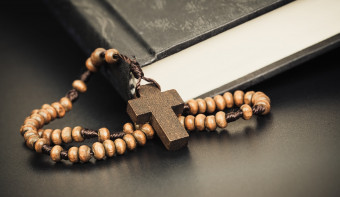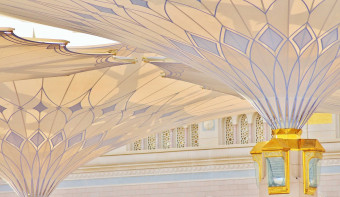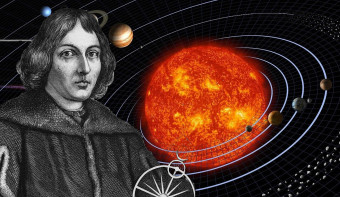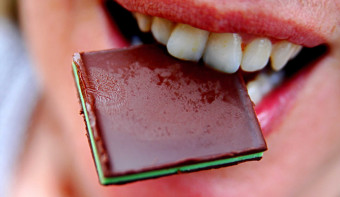About Ramadan
| How long until Ramadan? | |||
|---|---|---|---|
| Ramadan . | |||
| Dates of Ramadan | |||
|
2027 Various Feb 8
EgyptMon, Feb 8Observances Holiday
InternationalMon, Feb 8Observances Holiday
2026 Various Feb 19
EgyptThu, Feb 19Observances Holiday
InternationalThu, Feb 19Observances Holiday
2025 Various Mar 1
EgyptSat, Mar 1Observances Holiday
InternationalSat, Mar 1Observances Holiday
2024 Various Mar 11
EgyptMon, Mar 11Observances Holiday
InternationalMon, Mar 11Observances Holiday
2023 Various Mar 23
EgyptThu, Mar 23Observances Holiday
InternationalThu, Mar 23Observances Holiday
| |||
| Summary | |||
| Ramadan is the ninth month of the Muslim calendar. It is during the month of Ramadan that Muslims fast. | |||
| Where is Ramadan observed in 2026? | |||
|
EgyptFeb 19
|
|||
When is Ramadan?
Ramadan is the Arabic name of the ninth-month* of the Islamic calendar. The date of Ramadan in the Gregorian calendar moves forward about 11 days each year due to the different lengths of the Islamic and Gregorian years.
It is considered one of the holiest Islamic months. It's also one of the Five Pillars of Islam. These are five principles that Muslims believe are compulsory acts ordered by God. It is during the month of Ramadan that Muslims fast.
Muslims believe that some of the first verses of the Islamic holy book, the Qu'ran, were revealed to the Prophet Muhammad during the month of Ramadan. Extra emphasis is placed on reciting the Qu'ran at this time.
The Fast of Ramadan
The Fast of Ramadan lasts the entire month, which can be 29 or 30 days, depending on the sightings of the moon.
Ramadan is a time when Muslims concentrate on their faith and spend less time on the concerns of their everyday lives. It is a time of worship and contemplation. Fasting is considered to be an act of worship, which enables Muslims to feel closer to God and strengthen their spiritual health and self-discipline.
During the Fast of Ramadan strict restraints are placed on the daily lives of Muslims. They are not allowed to eat or drink during the daylight hours. Smoking and sexual relations are also forbidden during fasting.
Muslims can eat a pre-dawn meal (usually including protein and fats) known as suhur to sustain them during the day. Once the fast begins, even taking a sip of water is seen as breaking the fast.
At the end of each day, the fast is broken with prayer and a meal called the iftar. In the evening following the iftar, it is customary for Muslims to go out visiting family and friends. The fast is resumed the next morning.
There are some exemptions to fasting for health reasons. Pregnant, breastfeeding and menstruating women are exempt from the fast. The ill, children and the elderly are also not required to participate.
In 2017, a Palestinian judge banned divorce during Ramadan because "people make hasty decisions when they're hungry".
Ramadan is also a time to consider those less fortunate. Many Muslims will donate money to charities, while others distribute iftar meals to low-paid workers and the homeless. It is believed that good deeds done during Ramadan are rewarded many times over.
The word “Ramadan” itself is taken from the Arabic word, “ramad,” an adjective describing something scorchingly dry or intensely heated by the sun.
During Ramadan, it is common for Muslims to go to the Masjid (Mosque) and spend several hours praying and studying the Quran. In addition to the five daily prayers, during Ramadan, Muslims recite a special prayer called the 'Taraweeh prayer' (Night Prayer). The length of this prayer is usually 2-3 times as long as the daily prayers. Some Muslims spend the entire night in prayer. Some Mosques will attempt to complete one of 30 juz, or sections, of the Quran every evening.
In some countries, sunset during Ramadan is announced by a cannon. Some historians believe that the custom dates back to as far as 10th century Egypt when one of the Fatimid caliphs ordered a cannon to be placed on Cairo’s Muqatam Hill so all Muslims would hear the signal to break their fasts.
Another story dates back to the 15th century when a Mumluk sultan of Egypt wanted to test out a cannon he had recently acquired. He just so happened to fire a ball at sunset, and people assumed this was his thoughtful way of letting them know they were allowed to break the fast.
The last ten days of Ramadan are seen as the most auspicious and is a time of intense worship, during which many will perform additional prayers. Some will also perform itikaf, when they stay in the mosque for at least one whole day.
The holiday of Eid al-Fitr, which means "festival of breaking the fast", marks the end of Ramadan and the start of the next lunar month, Shawwal. This day is declared when the crescent new moon has been sighted or if sighting of the moon is not possible due to the weather.
Eid al-Fitr marks the completion of 30 days of fasting and is celebrated across the Islamic world with public holidays lasting for several days.
The Islamic Calendar
*The Islamic calendar is based on the moon (Lunar) , while the solar calendar is based on the sun (Solar). The solar calendar months are made of 30 or 31 days except for February. The Lunar calendar months are made of 29 or 30 days. Ramadan can, therefore, last for either 29 days or 30 days.)
The start and end of the month is based on a combination of physical sightings of the moon and astronomical calculations. The practice varies from place to place, some places relying heavily on sighting reports and others totally on calculations. In the United States, most communities follow the decision of the Islamic Society of North America, which accepts bona fide sightings of the new moon anywhere in the United States as determining the start and end of the month.
With the Islamic lunar calendar, being 11 to 12 days shorter than the Gregorian calendar migrates throughout the seasons. The entire cycle takes around 35 years. In this way, the length of the day, and thus the fasting period, varies in length from place to place over the years. Every Muslim, no matter where he or she lives, will see an average Ramadan day of the approximately 13.5 hours.
Similar Observances
Ash Wednesday
Read More
Eid Al Fitr ☪️
Read More
Other Observances on February 19th 2026
Copernicus Day
Read More
International Tug-of-War Day
Read More









